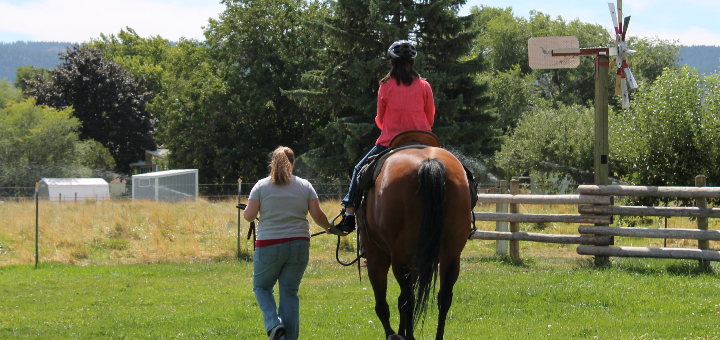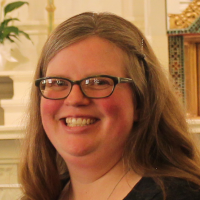
[caption id="attachment_163868" align="aligncenter" width="800"] Copyright 2019 Amanda Villagómez. All rights reserved.[/caption]
Copyright 2019 Amanda Villagómez. All rights reserved.[/caption]
This month is the final post in the Walking Well series focusing on how educational pedagogy can inform the process of evangelization. After considering the value of purpose, mindsets conducive to growth and empathy, learning by doing, constructing knowledge, social interaction and optimal instructional targets based on current development, I conclude this series with a consideration of P. David Pearson and Margaret Gallagher’s Gradual Release of Responsibility.
Last month the focus was on the Zone of Proximal Development (ZPD) -- instruction tailored toward meeting individuals where they are at and then helping them grow with support to learn teaching points that are realistic at that moment. A key part of ZPD is the recognition that learners need the support of a more knowledgeable peer or adult to help them to progress from where they are to what they are ready to learn.
Gradual Release of Responsibility is an instructional framework to provide sufficient support when working towards that identified appropriate teaching point. Moving through cycles of learning, Gradual Release of Responsibility begins with a high level of support but then transitions towards independence. For example, teachers can begin with demonstration -- showing and modeling the process or concepts. Then they can guide the group through a shared demonstration experience in which the class navigates another example together. After seeing and then practicing in a whole group, teachers facilitate an opportunity for guided practice, often in small groups. Finally, independent practice provides an opportunity to apply learning on their own. Self-assessment and teacher assessment of the independent practice can reveal whether or not additional support and re-teaching is needed or whether the learner is ready to progress into a learning cycle with a new teaching point.
[caption id="attachment_170823" align="aligncenter" width="800"] Copyright 2020 Amanda Villagómez. All rights reserved.[/caption]
Copyright 2020 Amanda Villagómez. All rights reserved.[/caption]
Within evangelization contexts, this is a reminder that we need to provide intentional and targeted support. We can think about disciplines of disciples, such as a life of prayer and reading The Bible and consider: Where are those we are walking alongside already at? What might be the natural next step? What support would be helpful in helping them to make that jump between where they are and where they could grow toward?
For example, my daughter has a goal of reading Scripture more frequently, but she was overwhelmed with where to start. Her confirmation sponsor recently gave her an Every Sacred Sunday Mass journal that she absolutely loved and was excited about; yet she was not confident in independently integrating it into her weekly Mass routine. Instead, we begin by reading through the readings together prior to Mass. She explains what she understands, where she is confused, and what is speaking to her heart. I provide clarification as needed and also share glimpses into how the Scripture impacts me. The homilies have been making more sense to her, and we debrief after Mass.
Eventually, she will be able to complete this process on her own. My role can slowly decrease over time by closely paying attention to whether or not she still needs the support. At that point, she might have a new goal or idea for how she would like to grow, and I can consider which support would be necessary or helpful, beginning a new gradual release of responsibility cycle.
[caption id="attachment_163871" align="aligncenter" width="800"] Copyright 2019 Amanda Villagómez. All rights reserved.[/caption]
Copyright 2019 Amanda Villagómez. All rights reserved.[/caption]
We can see how Jesus interacted with His disciples in ways that reflect a gradual release of responsibility. In the beginning He invited, “Come after me, and I will make you fishers of men” (Matthew 4:19). Then He taught and demonstrated through words and actions. For example, he said, “Blessed are the merciful, for they will be shown mercy” (Matthew 5:7) and then He showed great love and mercy as He healed a leper, a centurion’s servant, demoniacs, paralytics, the blind, a mute … (Matthew 8-9).
Next, Jesus began to release responsibility, while continuing to teach, demonstrate and support. He equipped and sent out the apostles: “Then he summoned his twelve disciples and gave them authority over unclean spirits to drive them out and to cure every disease and every illness. [...] Jesus sent out these twelve after instructing them [...] When Jesus finished giving these commands to his twelve disciples, he went away from that place to teach and to preach in their towns” (Matthew 10:1, 5, 11:1). Yet, when they were unable to heal a particular person, Jesus demonstrated how to heal him and then spoke with the disciples in private about why they were unable to do so originally (Mark 9:17-18; 28-29).
Finally, Jesus prepared His disciples for His departure, saying, “I did not tell you this from the beginning, because I was with you. But now I am going to the one who sent me, and not one of you asks me, ‘Where are you going?’ But because I told you this, grief has filled your hearts. But I tell you the truth, it is better for you that I go. For if I do not go, the Advocate will not come to you. But if I go, I will send him to you” (John 16:4-7). They were then in a more independent phase -- with ongoing support of the Holy Spirit and the sacraments.
Loving Lord, Just as you supported the apostles through cycles of learning to lead them towards the beautiful plans You had for them, please help us to seek and accept support for the ways we need to grow. Aid us in thinking carefully and intentionally about how we lead and guide others in order to nurture their spiritual growth. Remind us that it all begins with and cycles back to carefully and closely observing You. Christ, be our light!
Copyright 2020 Amanda Villagómez
About the Author

Amanda Villagómez
Amanda Villagómez is a wife, mom of 6, and teacher educator. On her personal site, she focuses on the beauty of becoming who God created us to be by celebrating the process of change and growth.


.png?width=1806&height=731&name=CatholicMom_hcfm_logo1_pos_871c_2728c%20(002).png)
Comments